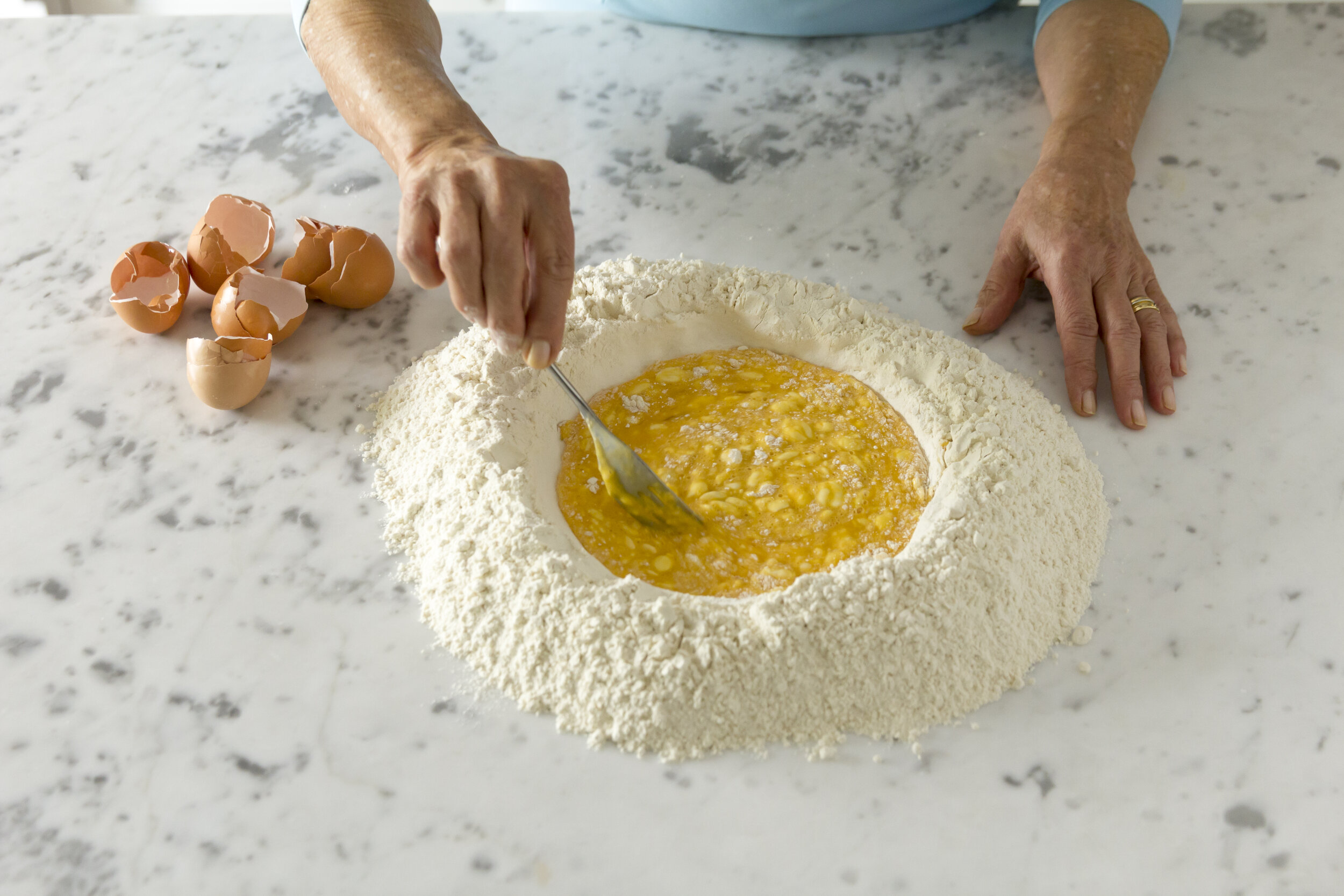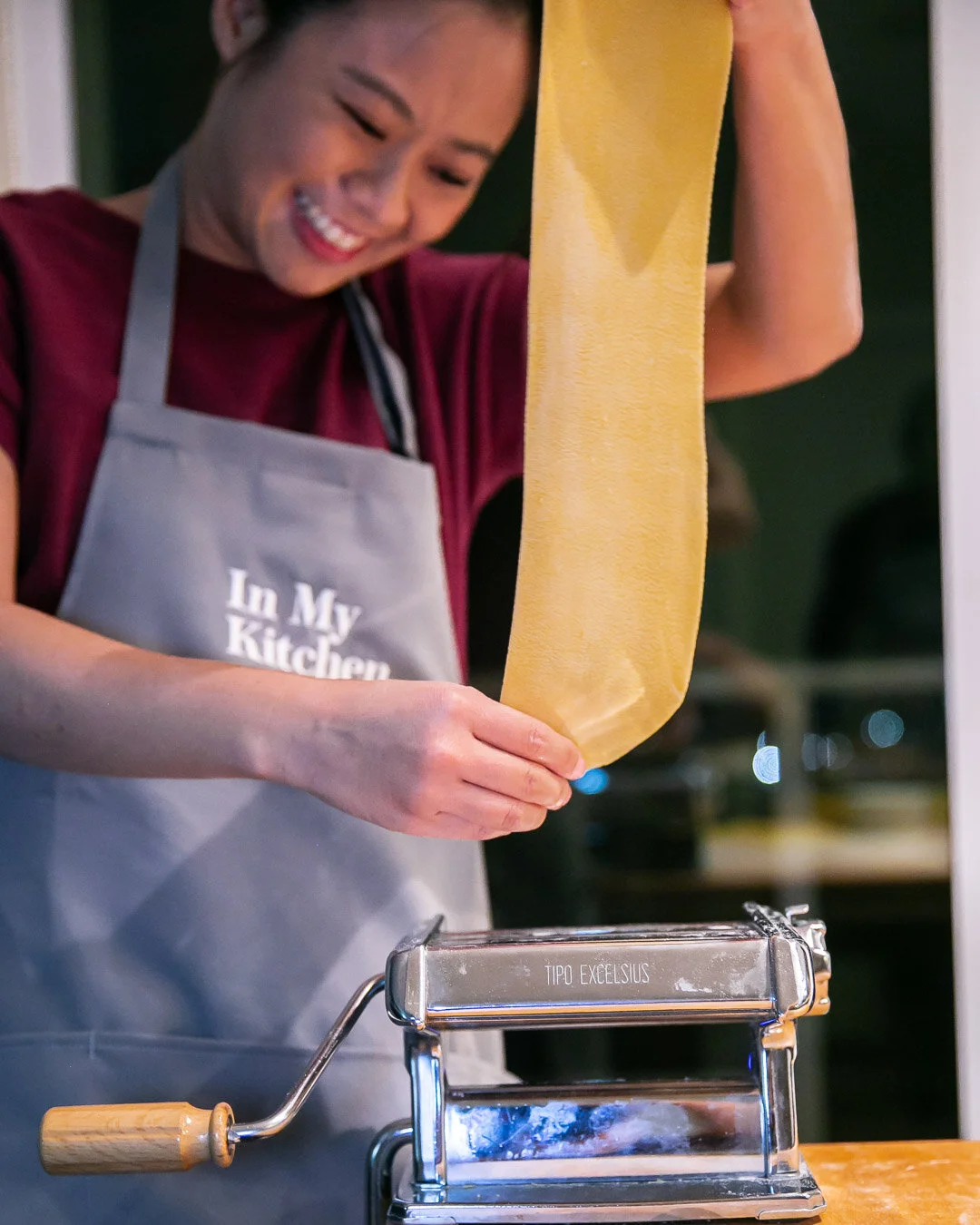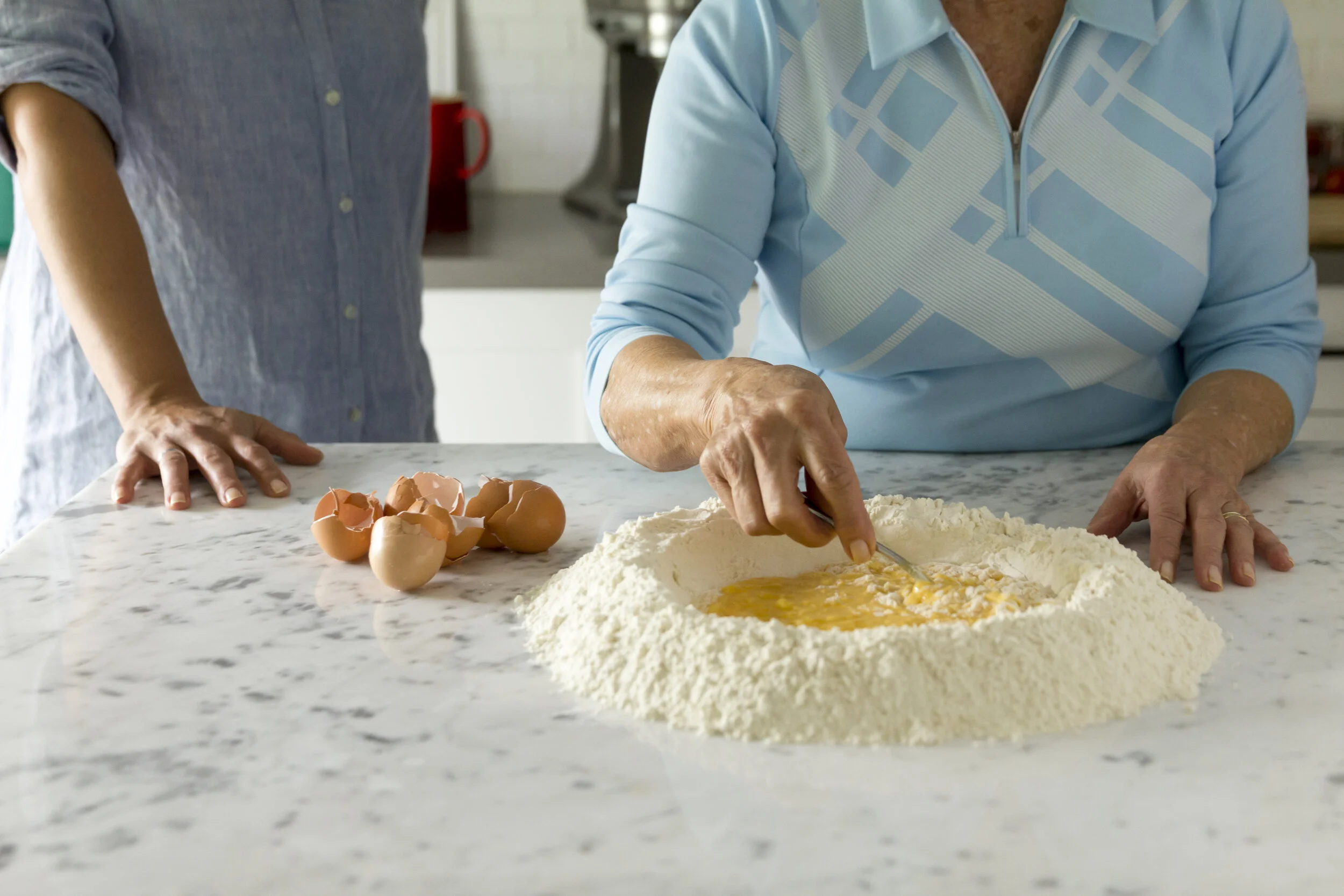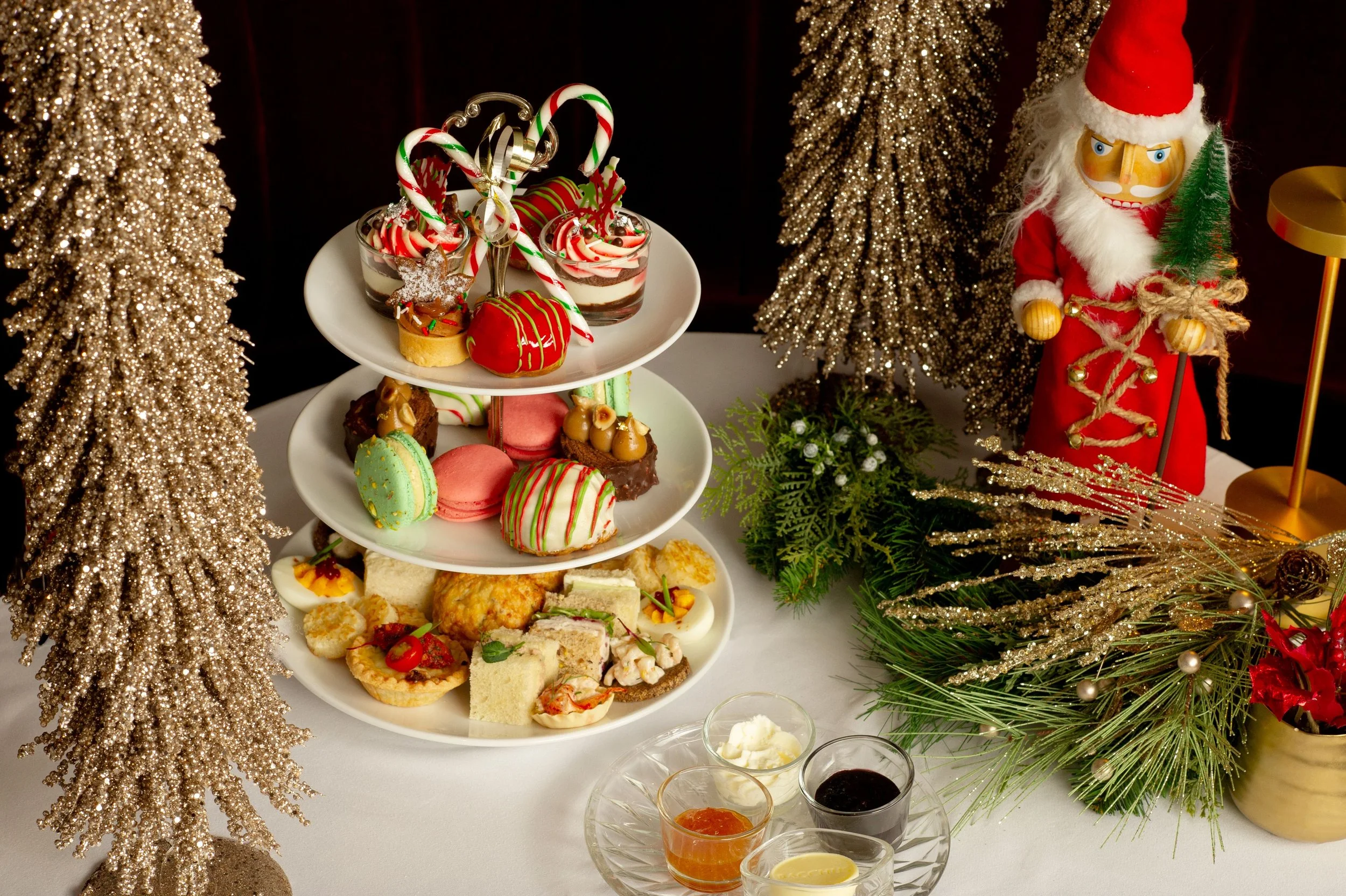The Fiorucci family’s lasagne makes its way from nonna’s Umbrian kitchen to Dine Out Vancouver Festival
In My Kitchen presents a virtual cooking class and cultural experience
Making lasagne from scratch isn’t difficult, but it is time-intensive, says Melissa Fiorucci. Photo courtesy In My Kitchen
In My Kitchen’s Fiorucci Family Lasagne, a virtual culinary experience, takes place on February 27 as part of Dine Out Vancouver Festival.
DINE OUT VANCOUVER Festival might be best known for its meal deals, but the annual event also builds tastings, tours, and more into its programming, much of it happening online this year. One of the highlights for 2021 is a virtual class that’s as much about cooking as it is about culture. Fiorucci Family Lasagne is a chance to learn a family recipe that has been passed down from generation to generation.
Melissa Fiorucci will teach people how to make everything from scratch, from the traditional Italian ragu to the béchamel sauce to the fresh noodles.
“Lasagne was very much a special occasion type dish in my family—although that doesn’t mean fancy or elaborate; it just means that it was something my nonna would make when regular, everyday pasta wasn’t going to cut it,” Fiorucci tells Stir. “My dad and I would both fight over the crunchy, almost burnt corner bits—still my favourite part. We ate it either in my nonna’s glass-enclosed patio, freezing in winter, scorching in summer, or in the wood-panelled basement with the long table, various knickknacks, and the ubiquitous poster of the 1982 World Cup Champion Italian soccer team.”
The Zoom cooking class, taking place on February 27 in two parts, is presented by In My Kitchen. Founded by Paula Mohammed, IMK offers culinary experiences led by passionate home cooks of diverse cultural backgrounds. Before COVID-19, sessions unfolded in small groups in people’s homes; now, everything is online, but the format is the same: participants get to try new flavours and dishes, experiment with ingredients and techniques, and learn about different cultures through traditional cooking knowledge. Just like being at someone’s house for a dinner party, conversation flows.
Born in Vancouver, Fiorucci comes from a family of immigrants. Her father arrived in Canada from Gubbio, a small town in Umbria, when he was 12. Her mom, who was also born in Vancouver, has roots in Northern Italy in Denmark. (“I was lucky enough to be raised with both pasta and akvavit,” Fiorucci says.) She first travelled to Italy when she was four years old, and moved there after graduating from Simon Fraser University in 2007, living in Milan until 2011.
Food has always been central to the way her family functions.
“In my family, if we’re not eating, we’re thinking about what we’re going to eat,” Fiorucci says. “All of our celebrations and memories are centred on and surrounded by food.
“I think one of the hardest parts of this pandemic has been not being able to share food with our family and not knowing when we’ll be able to enjoy food with our family in Italy,” she says. “For better or worse, food is how we give, receive, and show our love in my family, and I think to a larger extent in Italian culture. We also love arguing about it. There’s nothing quite like listening to Italians arguing over food.”
Fiorucci learned to make lasagne by watching her nonna; zia Maria, her grandmother’s sister, who still lives on a small plot of land in Umbria, taught her some of the finer details of a good lasagne—such as mixing a bit of sauce in with the béchamel so it isn’t stark white, or making lasagne bianco with artichokes or asparagus—“but imagine all this wisdom being imparted with gruff practicality, no measurements and no specifics,” she says.
Maria Fiorucci (left) and her sister (far right) learned about the finer points of lasagne from their aunt Maria.
A good lasagne isn’t hard to make, Fiorucci notes, but it does take time, which is why the IMK/Dine Out event is split into two parts. The first session runs from 12 noon to 2 pm and involves the pasta- and sauce-making. The second is from 5 to 6:30 pm and involves the béchamel and assembly.
Fiorucci recommends never being in a rush to make the dish and investing in a pasta maker.
“Personally, I would only make it if I had a long space of time that I could leisurely fill,” she says. “I am a slow and thoughtful cook who would do absolutely terrible in a restaurant kitchen. And making it without a pasta maker is… ambitious.
“My nonna used to roll her dough out by hand, and so do many of the older women, but they have so many years of experience,” she says. “Nonna, for example, started cooking for the family at the tender age of six—she used a foot stool to reach the table. Anytime someone, usually a man, gives me grief about using the pasta maker, I remind them that I once heard it was an essential tool in freeing women from the drudgery of domestic servitude while still allowing them to make amazing food.”
When it comes to pasta generally, it’s a misconception that fresh is always superior to dried, Fiorucci says. Roman food traditions, for instance, rely heavily on dried pasta for their robust, flavourful sauces such as carbonara, amatriciana (with guanciale, or pork jowl, and pecorino cheese), and cacio e pepe (cheese and pepper). None of those sauces would taste quite right made with, say, tagliatelle.
“There are so many variables that go into what pasta is used for what dish, but know this: Italians eat a huge quantity of pasta, and if we were always eating fresh pasta, we’d never get anything done,” Fiorucci says. (She notes that her favourite pasta is La Molisana brand spaghetti, which her nonna made for the family virtually every day with tomato sauce; a close second is fresh tagliatelle with a pork-rib sauce.)
“There’s no need for perfection in the kitchen,” Fiorucci says, “but be confident in your capabilities and strengths. Also remember grandmothers are your best resource.”
For more information, go to In My Kitchen or Dine Out Vancouver Festival.
In My Kitchen offers cross-cultural cooking experiences.

















